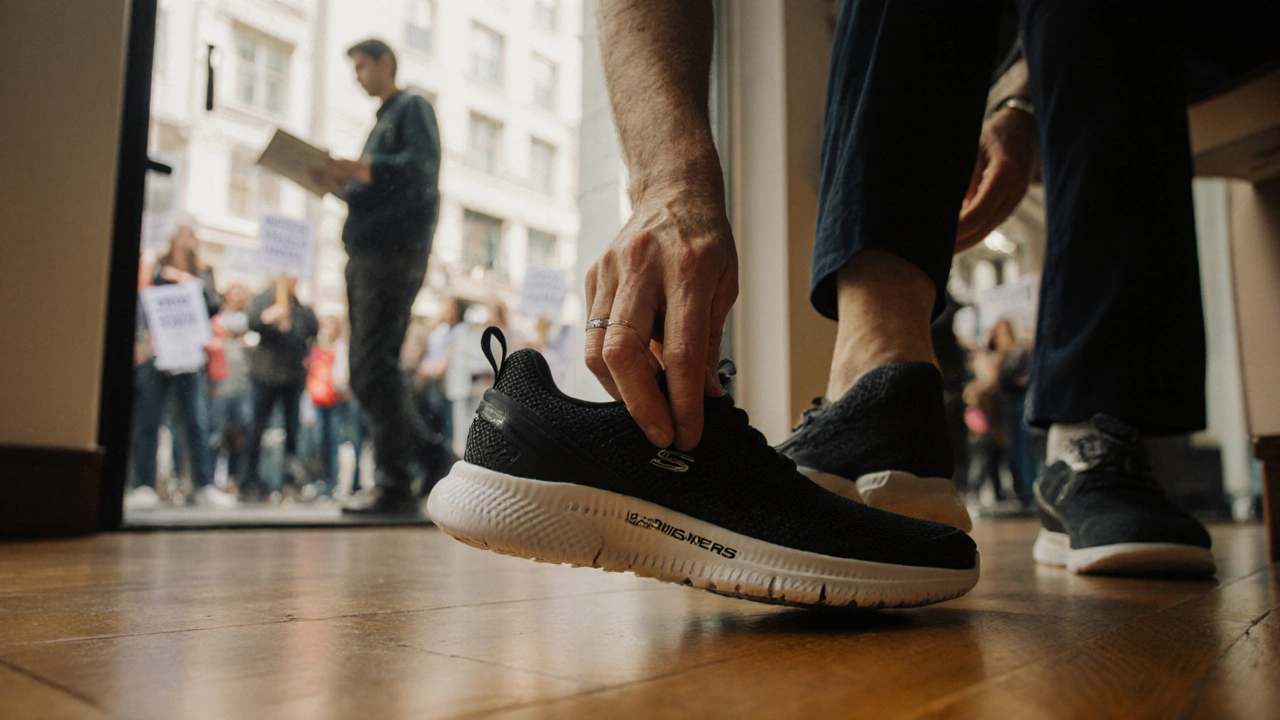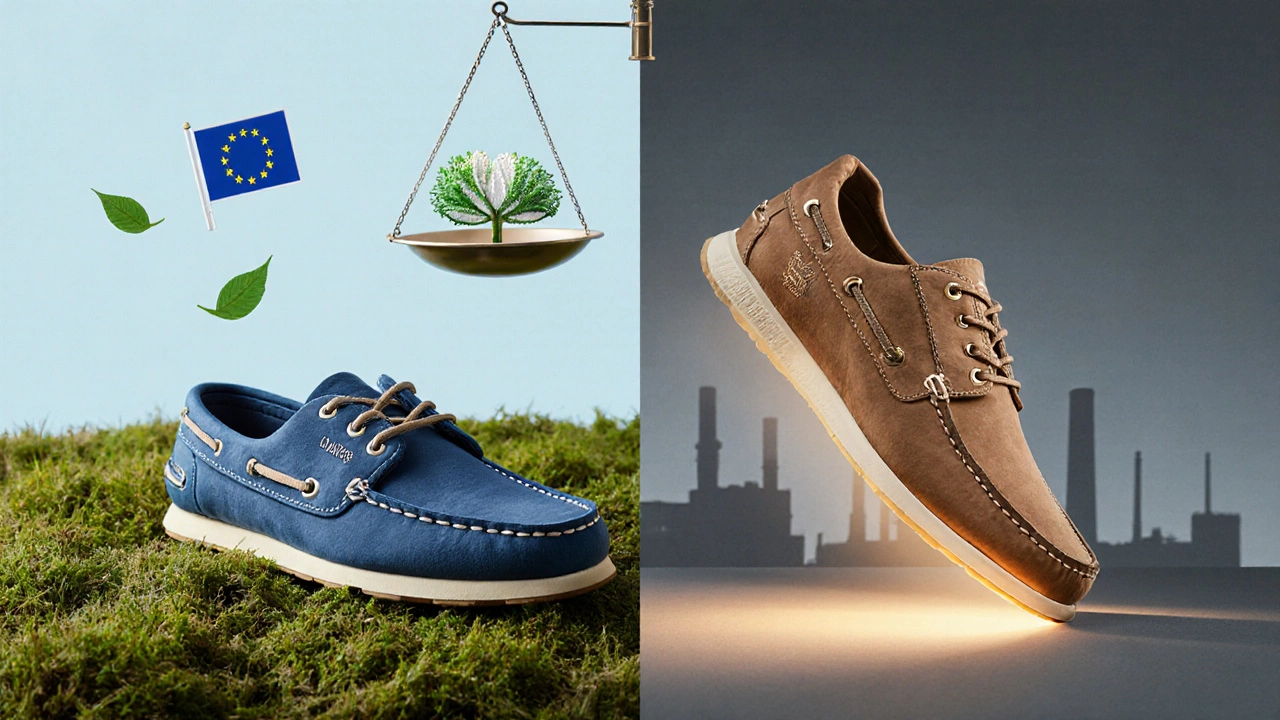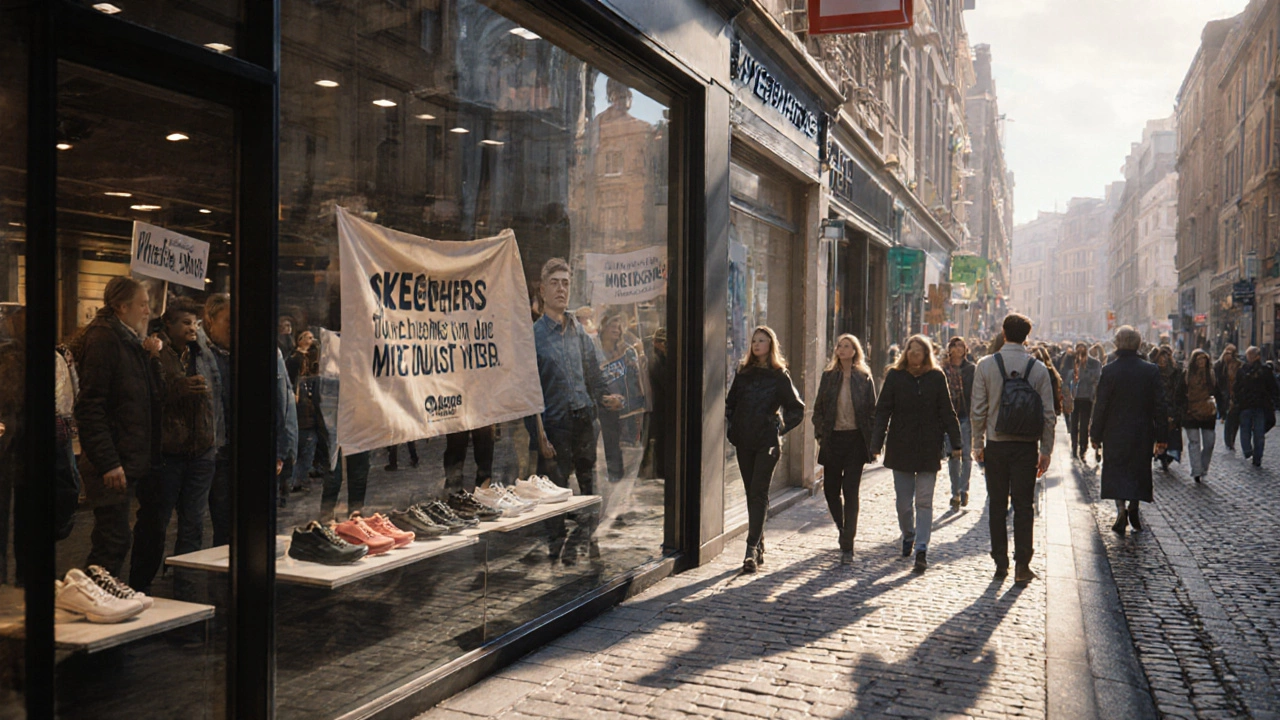Skechers Controversy: Consumer Rights Checker
Check Your Rights
Use this tool to understand your options if you've purchased Skechers shoes in Ireland and experienced issues with quality or ethical concerns.
Your Rights Summary
Quick Takeaways
- Skechers faced legal action in Ireland over alleged safety defects in several shoe lines.
- The brand’s labour‑practice claims sparked protests outside Dublin stores in early 2025.
- Consumer Protection Act 2007 gives shoppers the right to refunds and repairs for faulty footwear.
- Irish retailers responded with price‑matching guarantees and extended return windows.
- Choosing ethically‑produced shoes can protect you from future controversies.
When you hear the buzz around Skechers controversy on the Grafton Street footpath or see a heated debate on a Dublin parenting forum, it’s easy to wonder what’s really happening. In Ireland, the debate touches everything from product safety and consumer rights to global labour standards. Below, we break down the main flashpoints, explain how Irish law protects you, and give practical tips for anyone thinking about buying a pair of Skechers shoes.
What sparked the Skechers controversy?
In March 2025, the Irish National Retail Association (INRA) received a flood of complaints about the Skechers Memory Foam Runner - a popular running shoe sold in stores like BrownThomas and the flagship Skechers shop on HenryStreet. Shoppers reported that the midsole’s foam cracked after just a few weeks, leading to painful foot fatigue and, in some cases, bruised heels.
Simultaneously, environmental NGOs such as Irish Green Alliance began releasing reports that Skechers’ supply chain in Southeast Asia relied heavily on factories with sub‑minimum wage standards, sparking a wave of protests at the company’s Irish outlets.
Legal angles: How Irish law steps in
Under the Consumer Protection Act 2007, any product sold in Ireland that is not of ‘merchantable quality’ can be returned for a full refund, replacement, or repair. The act also empowers the Competition and Consumer Protection Commission (CCPC) to investigate and enforce corrective measures.
In August 2025, the CCPC opened a formal investigation into the Skechers Memory Foam Runner after the Irish Standards Agency (ISA) confirmed that the foam’s compression rate fell below the European Union’s EN‑ISO20344 safety threshold.
For consumers, this means you can approach the store where you bought the shoes with a written complaint, and the retailer must respond within 14days. If the retailer refuses, you can file a claim with the Small Claims Court, where cases under €2,000 are typically resolved within six weeks.

Irish retailers’ response
Major Irish shoe retailers quickly adapted to protect their reputation:
- BrownThomas introduced a 30‑day “Fit‑Check” policy for all Skechers models, allowing returns even without a receipt.
- The independent chain Dubarry Shoes offered a 12‑month “Sole‑Care” warranty on high‑traffic models, covering sole replacement at no cost.
- Skechers’ own Irish flagship store announced a “no‑questions‑asked” exchange for any pair showing foam breakdown, mirroring the policy of large UK stores.
These measures helped calm shoppers but didn’t erase the underlying concerns about the brand’s global supply chain.
Supply‑chain ethics: The labour‑practice debate
The second prong of the controversy revolves around how Skechers treats workers in overseas factories. A 2024 report by the International Labour Rights Forum highlighted that factories producing Skechers shoes in Vietnam and Indonesia paid wages 30% below the living‑wage benchmark set by the International Labour Organization (ILO).
Irish activist groups, including Students for Fair Trade Ireland, organized a series of sit‑ins at the flagship Skechers store on HenryStreet in April 2025. Protestors carried signs reading “Fair Pay, Fair Shoes” and distributed leaflets explaining how a single pair of shoes could be linked to child labour allegations.
In response, Skechers’ European headquarters issued a statement promising a “comprehensive audit of all third‑party manufacturers by the end of 2025.” While the pledge was welcomed, critics noted that the company had not yet committed to paying a living wage or providing transparent supply‑chain reporting.
What this means for Irish shoppers
For everyday consumers in Dublin, Cork, Galway, or the smaller towns of CountyKerry, the controversy translates into three practical actions:
- Check the return policy. Before buying, ask the retailer about their specific return window for Skechers shoes and keep the receipt.
- Inspect the product. Look for any signs of low‑quality foam or stitching issues. A simple bend test of the midsole can reveal premature cracking.
- Consider alternatives. If ethical concerns are a priority, explore Irish‑made brands like Dubarry or other EU‑certified footwear that publish full supply‑chain data.
These steps help you stay protected under Irish consumer law while aligning purchases with personal values.

Comparison of key issues and retailer responses
| Issue | Impact on Irish consumers | Retailer / Legal response |
|---|---|---|
| Midsole foam cracking | Foot pain, extra cost for replacements | 30‑day Fit‑Check (BrownThomas), 12‑month Sole‑Care (Dubarry) |
| Labour‑rights allegations | Brand reputation risk, ethical buying concerns | Skechers audit promise, activist protests in Dublin |
| Consumer‑rights awareness | Greater demand for transparent policies | CCPC investigation, Small Claims Court pathway |
| Pricing pressure | Potential price drops due to competition | Price‑matching guarantees by major Irish retailers |
Future outlook: Will Skechers regain Irish trust?
Analysts at Irish Market Insights predict that if Skechers completes its supply‑chain audit and publicly commits to a living‑wage policy, sales could rebound within 12months. However, the Irish market is increasingly favouring locally‑produced, sustainably‑sourced footwear, a trend highlighted by the rapid growth of brands like GreenFeet, which saw a 45% sales jump in Q22025.
For now, the safest bet for Irish shoppers is to stay informed, exercise their legal rights, and weigh the ethical dimensions of each purchase.
Frequently Asked Questions
Can I get a refund for a defective pair of Skechers bought in Ireland?
Yes. Under the Consumer Protection Act 2007, you are entitled to a full refund, repair, or replacement if the shoes are not of merchantable quality. Contact the store within the retailer’s return window and present your receipt.
What should I look for when checking Skechers shoes for quality?
Inspect the midsole for firmness; press and bend it lightly - it should return to shape without cracking. Check stitching along the toe box and the heel counter for even seams. If the shoe feels unusually soft or the sole wiggles, it may be a defective batch.
Are there Irish alternatives to Skechers that focus on ethical production?
Yes. Brands such as Dubarry, GreenFeet, and Irish‑crafted shoe maker O'Driscoll Shoes publish full supply‑chain data and often source materials from EU partners that comply with ILO standards.
How can I report a faulty pair of shoes to the CCPC?
Visit the Competition and Consumer Protection Commission website and fill out the “Consumer Complaint” form. Include purchase details, photos of the defect, and any correspondence with the retailer. The CCPC will acknowledge receipt within five days and may launch an investigation.
Will the upcoming Skechers audit affect Irish stores?
If Skechers implements the audit findings, Irish retailers are likely to adjust their stock and marketing messages to reflect any improvements in product safety or ethical sourcing. Keep an eye on announcements from the brand’s European office for concrete changes.
